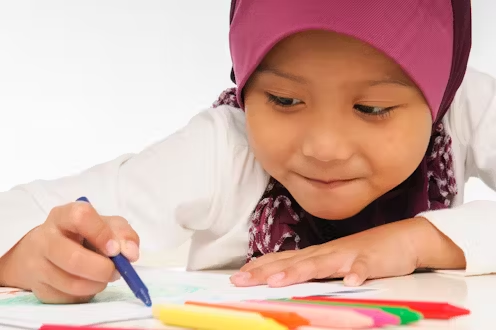The first anniversary of the October 7 Hamas attack on Israel and the beginning of conflict in Gaza left UK schools with a dilemma: how to mark the event. It has affected many around the world, including school children and their families in the UK.
Earlier in 2024, government adviser on social cohesion, Sara Khan, suggested that schools were not supporting reasonable debate about the Israel-Gaza conflict because teachers are nervous about handling such a sensitive topic in the classroom.
But if schools shut down the topic they risk encouraging mistrust, anger, hate and polarisation. Not least because students will instead seek out information online – and are quite likely to stumble upon fake news and conspiracy theories.
The leader of the UK’s biggest education union, Daniel Kebede, recently noted that there simply isn’t enough space in the curriculum for students to discuss such difficult issues. He claims the solution is to embed philosophy as a subject across England’s school curriculum.
The subject of philosophy is specifically set up to promote critical thinking skills and teach people how to have difficult conversations about controversial issues.
Teaching controversial topics
Controversial and sensitive topics are unavoidable. We encounter them discussed in the media, on the news, in the street and in our homes. Yet we are not always sure what to think, especially when the issue is complex, or how to talk to people we disagree with. And the skills of reasonable dialogue can be even harder when emotions are running high.
Young people need to learn how to discuss controversial issues like the Israel-Gaza war. The best way to do this is by including philosophy on the curriculum. Philosophy has an excellent toolkit designed to explore various points of view in a critically engaged way and, when taught dialogically – through discussion between students and teachers – students become seekers of shared knowledge and wisdom.
A key aspect of a democracy involves welcoming different ideas. Such diversity is a strength because it allows for many claims to be scrutinised, with only the best arguments gaining traction. Yet this process of sharing ideas requires our citizens to be able to hold reasoned discussions and to think critically.
To avoid aggression or chaos, people need to engage charitably with one another, being respectful of various experiences and perspectives while also being critical of the ideas presented.
The dialogical skills of philosophy
Philosophy, more than any other subject, encourages students to think about the reasons why they think something, and entertain the possibility that there are other points of view.
Philosophy is inherently dialogical. The most common teaching approach is to think about the steps in an argument, and then to consider the weaknesses in each of these.
Philosophy does this by teaching students to check: What assumptions am I making? Are the premises of my position sound? Does the conclusion logically follow from my starting point? What is a counterargument or counterexample to which I need to reply? Could I be wrong about this? What additional information do I need to draw a conclusion?
These kinds of questions encourage intellectual humility: the idea that I, like anyone else, could be wrong. Intellectual humility goes hand in hand with open-mindedness, ensuring we remain open to relevant new information.
Such skills of critical thinking and respectful disagreement are vital in a time of disinformation and fake news. Not only do we need young people to learn how to fact check and be critical of what they see and hear, but we also need them to learn that it is OK to disagree.
Being open-minded
The influential American philosopher Daniel Dennett, who died earlier this year, wrote about the importance of criticising with kindness and seeking the most charitable version of your opponent’s position. This is so important when discussing controversial topics, because reasonable people will disagree.
Criticising with kindness means staying humble and open to different points of view when having difficult conversations. And it means creating space for the airing of diverse arguments and examples. In this way, teachers who are trained in philosophy are able to remain politically neutral while helping students converse with one another about important issues that affect them and those they care about.
Philosophy is about learning to be respectful of others whose views differ from one’s own and to accept reasonable disagreement. It also teaches us to be comfortable with unsettled questions and complex answers. Teaching philosophy in the classroom leads to students engaging with ideas charitably and critically, encouraging open-mindedness and intellectual humility.
It is the skills of dialogue that we need as our society faces increasing polarisation and violent disagreement. These skills are some of the defining characteristics of a democracy. Happily, teachers are uniquely positioned to embrace the subject of philosophy and the skills it has to offer.


